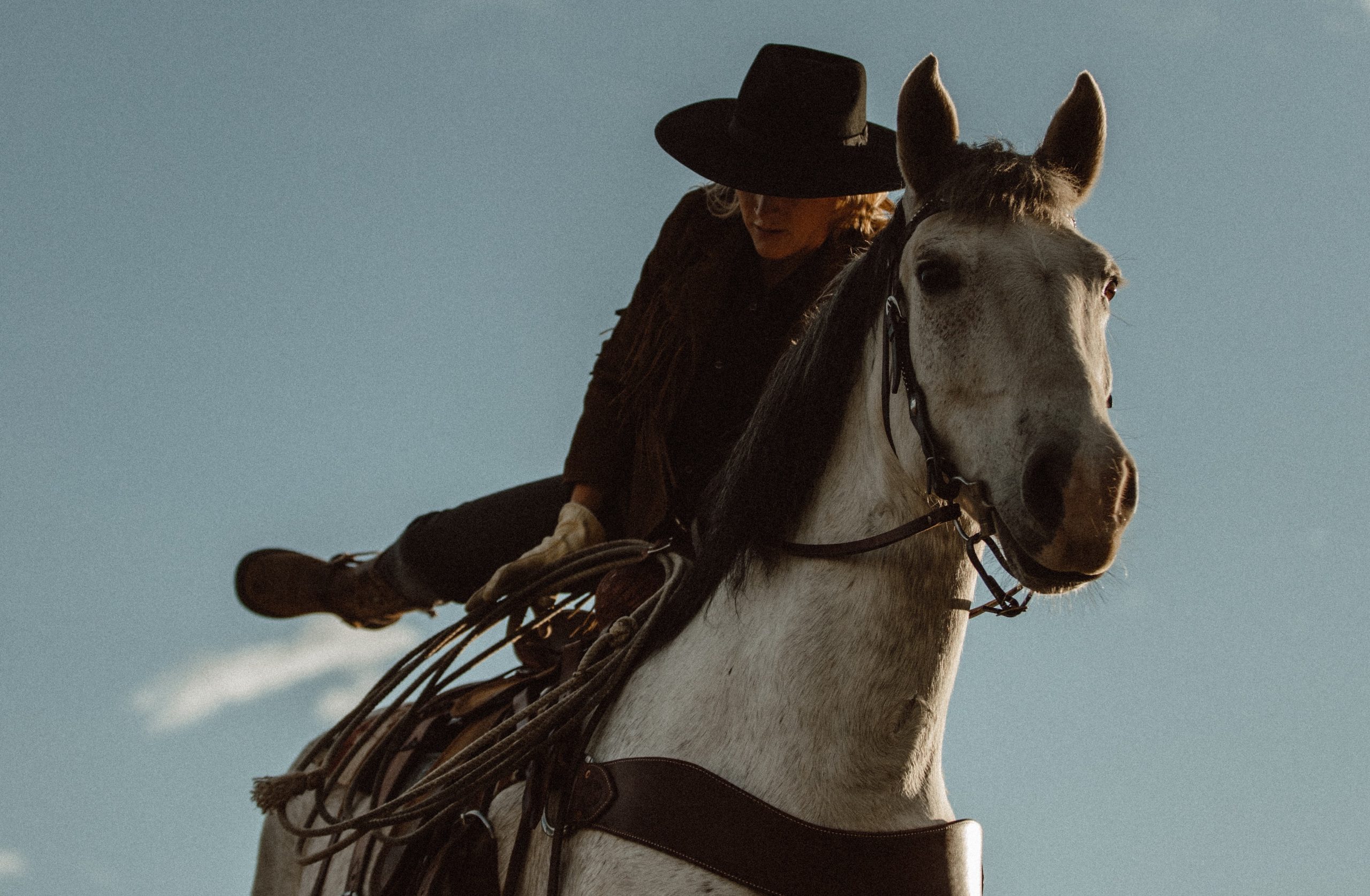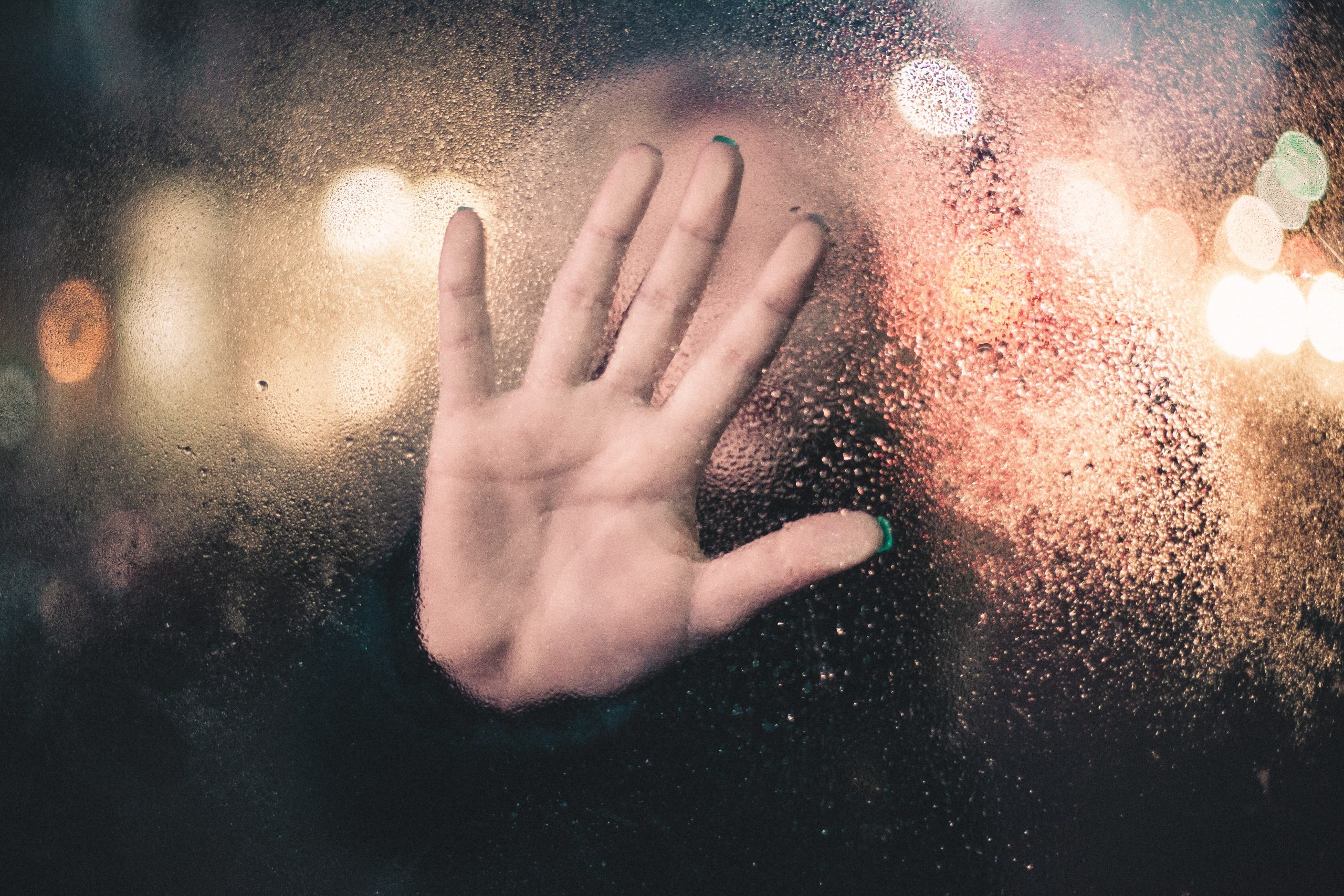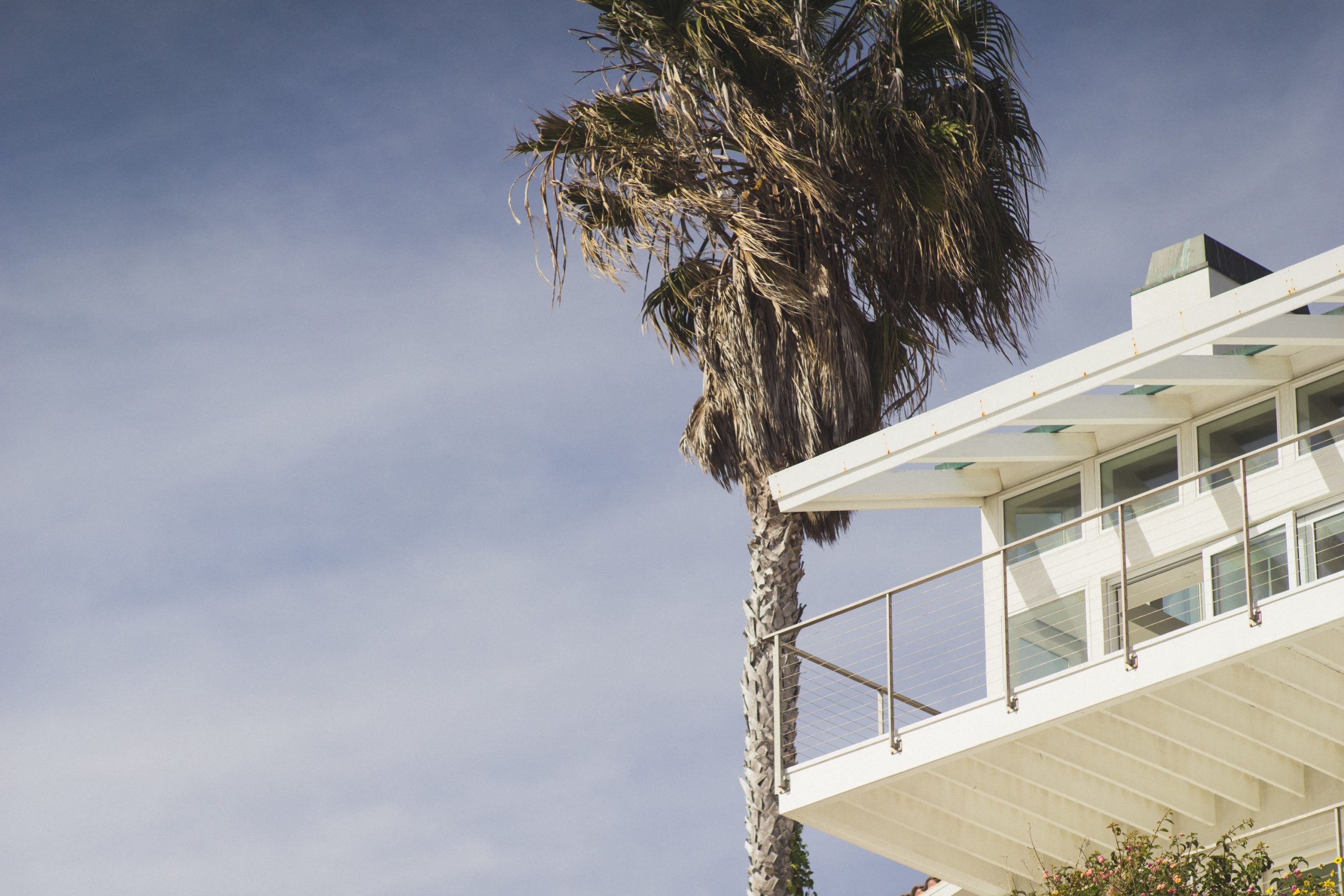Lit Mags
Is My Husband Having an Affair With Me?
"The Complex," flash fiction by Scott Limbrick

Is My Husband Having an Affair With Me?
The Complex
It’s a warm Sunday afternoon when I notice myself moving in. Through the window I watch me, in my favorite exercise gear, carrying bags and directing movers across the building’s central courtyard. My husband uses a trolley to shift boxes, his navy cap shielding his face from the sun. Our son, just old enough to help, wheels suitcases along the concrete path, while our daughter runs back and forth, carrying messages between us. In this way, my family moves into the apartment three doors down from ours, then goes about our daily life.
Over the next few weeks, my family moves into other units, occupying every apartment in the complex. As we do, I begin to spot differences between us – differences in age and style, in energy and manner. Together, we form a patchwork of former lives and possible futures; but we are all, unmistakably, us. We share features that never change: the mole on my neck; my husband’s unusually tall frame; our son’s lone dimple; our daughter’s dark, curly hair. We bring furniture and belongings, items I recognize, like the coffee table my father made in a woodworking class, or the Hockney print we had been given as a wedding gift. My husband agrees that this is odd, but refuses to talk about it, even as I sit on my balcony and drink wine as I observe myself doing the same.
In 12B we are the same age, but I have short hair, dyed bright red, I wear jumpsuits covered in vibrant patterns, and my husband has a large tattoo snaking its way up his left forearm. In 2C and 10D our children are teenagers, their features giving them away, in 9A they are the toddlers I once cared for, and in other units, I come to realize, we don’t have children at all. But my husband and I are always together. In 5C and 7D we are the oldest I can find, maybe by thirty years, our hair greyer and our movements slower. In 7D we seem content, and in 5C, bitter.
One afternoon, walking by the ground floor window of 3A, I glimpse my husband in the kitchen cooking an elaborate meal, something he used to do before work consumed his waking hours. On the balcony of 4C, I see myself tending to plants I cannot name, indulging a hobby I’ve never explored. Sometimes I hear my younger upstairs neighbor on the phone, having heated arguments with my mother about my decision to study photography, somehow living out moments I have already experienced. I sense myself lying on the bed in the room above, imagining the incredible life that is yet to come, readying myself to leap into the unknown. But I know how dangerous and disappointing this will be.
Us parents begin to speak, briefly, in the corridors, passing each other as we take our trash out, or on our way to our cars. We ask few questions, keeping conversations simple and gentle, like we’re afraid we might break something. There’s a fragility to our encounters, always inside the block: I never see myself outside the building.
I can’t tell if we’re all as obsessed with one another as I am, trying to gauge where our lives have taken the right or wrong turns, or where we might yet direct them. But I need to know which life is the one I really wanted, which is the one I now want, and whether these are the same.
I once bump into myself exiting 11A, where I wear muted linen in earthy tones and carry myself with a lightness I’d forgotten I ever had. It’s early in the evening, and the air is filled with the charge of a night that is still young.
“I love your outfit,” I say.
“Thanks,” I see myself reply. “We’re attending a gallery opening.”
My husband also emerges from the door of 11A, carrying a bottle of champagne and running his other hand through his hair, the way he used to when there was enough to bother.
“Is the opening for some kind of work?” I ask.
“Oh, we don’t really work, per se,” he replies. “I invested in a friend’s business and, what can I say – we got very lucky.”
I watch myself nod, smoothing out a crease in my loose linen shirt. “Now, we’re both really just focusing on our art.”
I hate myself more than anything.
My husband begins to work longer hours, and so do I. I wonder whether it’s ourselves we’re evading, or whether it’s each other. Even before we saw ourselves move in, we had been spending time apart.
He’d been drawn into an obsession with amassing items and career milestones, things I had never cared about and mistakenly believed he didn’t, either. Maybe he hadn’t, in the beginning, but he did now. I constantly disappointed him with my inability to feign enthusiasm for his latest household purchases, like stick vacuums or stereo systems, enabled by his dedication to his job.
At the same time, he would always find last-minute reasons not to join me as I left for a hike, reasons to stay at home with our children and leave me alone to experience nature. I would look at them on my way out the door, smiling at the small group of three on our plump gray couch, surrounded by modern art and even more modern technology, ready to fill their worlds without me.
Even now, when I ask him to join me on the balcony, my husband doesn’t like to watch our family. He prefers to pretend we don’t exist outside of our own home. For my husband, we are people to avoid.
Late into a night where the moon casts a soft glow over the courtyard, light catching on harsh concrete edges and shifting leaves, everyone has gone to bed. Standing alone at our window, I see myself leave my home and sneak to another unit. As I look on, the shadows against the blinds reveal the fumbling beginnings of an affair with my own husband.
Then, this older me, one who has seemed sad and dejected, sneaks from the door of 3A, the home of the husband who cooks. I watch myself cross the courtyard, taking the long route around to avoid the lights that cut sharp through the night. I try to guess what this husband sees in her, what he doesn’t see in his own home.
I think about whether my husband would cheat on me with myself, or whether, some day, I might grow tired of his habits and flaws and seek comfort and passion in the arms of another him. Maybe I would pursue the husband I see in 4C, older but calmer, gentler, more playful with our children. Or I might find solace with my husband in 11A, who knows without question that the world will be ours and still looks at me with desire. But maybe the woman I see in 4C is the one my own husband will find, with her gardening obsession and a singing voice honed through leisurely afternoons. He might prefer me in 12B, radiant and playful, with no need to shift attention away from my art. I wonder whether my husband has also somehow witnessed these moments between ourselves, and whether he’s had these thoughts about himself, or about me.
As I watch this unfold through lengthening nights, not just between me and another husband, but between several other mes and other husbands, I become jealous of myself: of the thrill of avoiding the suspicion of my husband while lusting after my husband, a husband I might prefer; of having the boldness, the confidence, to act so openly, to leave my children alone in my house and engage in such risky behavior when my children are also in the next room. I see myself, young and thrilled by the idea of being alive, seek out my husband with gray temples and tough skin, and I remember how I once wished my husband were more content, more competent, more steady and supportive. I ask myself which combination of us is the right one, at the right time; I ask myself whether such a combination exists.
I also witness the arguments, the days of coldness and avoidance. I see the confusion and despair, the faces wrecked by fresh recognition and understanding. My husband asks me to stop watching, stop listening, but he doesn’t want to know what I’m observing. I’m unable to bring myself to participate, but unable to look away from the excitement and despair of decisions I will never make. I need to understand what these decisions mean.
Then, in the chill of winter, pink edges of sun outlining the facades of nearby homes, I watch as a truck appears and my family moves out. More trucks arrive, are loaded, and drive away, until I, my husband and children are gone, all of us, and only my husband, my children and I remain.
In the morning, after a restless sleep, I walk out my front door and into the hallway. A long mirror lines the wall, and I catch sight of myself as I walk past. I stop and stare, wondering if I am the one I think I am.
The fluorescent bulbs lining the ceiling flicker, darkness thrust upon me and then withdrawn, as I watch myself appear and disappear.








